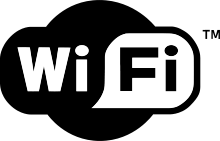Bluetooth is a proprietary open wireless technology standard for exchanging data over short distances (using short-wavelength radio transmissions in theISM band from 2400–2480 MHz) from fixed and mobile devices, creating personal area networks (PANs) with high levels of security. Created by telecoms vendor Ericsson in 1994, it was originally conceived as a wireless alternative to RS-232 data cables. It can connect several devices, overcoming problems of synchronization
Bluetooth Gadgets
There are lots of different ways that electronic devices can connect to one another. For example:
- Component cables
- Electrical wires
- Ethernet cables
- WiFi
- Infrared signals
Bluetooth is essentially a networking standard that works at two levels:
- It provides agreement at the physical level — Bluetooth is a radio-frequency standard.
- It provides agreement at the protocol level, where products have to agree on when bits are sent, how many will be sent at a time
- The big plusses of Bluetooth are that it is wireless, inexpensive and automatic
WIFI TECHNOLOGY AND GADGETS
Wi-Fi (![]() /ˈwaɪfaɪ/, also spelled Wifi or WiFi) is a popular technology that allows an electronic device to exchange data wirelessly (using radio waves) over a computer network, including high-speed Internet connections. The Wi-Fi Alliance defines Wi-Fi as any “wireless local area network (WLAN) products that are based on the Institute of Electrical and Electronics Engineers’ (IEEE) 802.11 standards”
/ˈwaɪfaɪ/, also spelled Wifi or WiFi) is a popular technology that allows an electronic device to exchange data wirelessly (using radio waves) over a computer network, including high-speed Internet connections. The Wi-Fi Alliance defines Wi-Fi as any “wireless local area network (WLAN) products that are based on the Institute of Electrical and Electronics Engineers’ (IEEE) 802.11 standards”
How Wi-Fi Works
Wi-Fi works with no physical wired connection between sender and receiver by using radio frequency (RF) technology
A large number of patents by many companies are used in 802.11 standard.[6] In 1992 and 1996, Australian organisation CSIRO obtained patents for a method later used in Wi-Fi to “unsmear” the signal.[7] In April 2009, 14 tech companies agreed to pay CSIRO $250 million for infringements on CSIRO patents.[8] This led to WiFi being attributed as an Australian invention
Wi-Fi is supported by many applications and devices including video game consoles, home networks, PDAs, mobile phones, major operating systems, and other types of consumer electronics.






